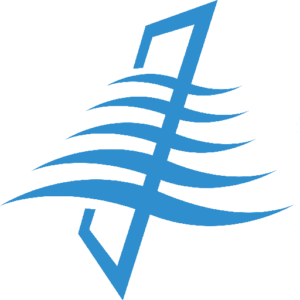FADGI-Compliant Document Scanning Services
TierFive provides FDA 21 CFR Part 11–compliant document scanning services that support regulated organizations in maintaining electronic records and signatures that are secure, trustworthy, and legally equivalent to paper records. Our scanning workflows are designed to meet FDA requirements for data integrity, access control, audit trails, and electronic record retention, giving pharmaceutical, biotech, and clinical organizations the confidence to digitize their regulated documents while staying inspection-ready.


What is FDA 21 CFR Part 11?
FDA 21 CFR Part 11 is a regulation issued by the U.S. Food and Drug Administration (FDA) that outlines the criteria under which electronic records and electronic signatures are considered trustworthy, reliable, and equivalent to paper records. It applies to companies in the life sciences, pharmaceutical, biotech, medical device, and clinical trial industries that are required to maintain regulatory documentation.
What Is FDA 21 CFR Part 11 and Why It Matters for Document Scanning?
21 CFR Part 11 is a regulation established by the U.S. Food and Drug Administration (FDA) that sets the criteria under which electronic records and electronic signatures are considered trustworthy, reliable, and legally equivalent to paper records. It applies to companies in life sciences, pharmaceuticals, biotechnology, medical devices, and clinical research that are required to maintain regulatory documentation in a controlled environment. Failure to comply with FDA 21 CFR Part 11 can result in warning letters, Form 483 observations, or rejected regulatory filings. The regulation outlines strict requirements for how digital records must be captured, secured, retained, and audited, making it essential that scanned documents—including SOPs, laboratory results, batch records, and clinical trial forms—are processed using validated systems and rigorous compliance workflows.
How TierFive Supports 21 CFR Part 11–Compliant Scanning
TierFive is HIPAA as well as SOC2 and ISO 27001 certified our staff is PBSA compliant verified and passes federal e-verification as best maintaining compliance with frameworks such as HIPAA, GDPR, FERPA, and DOL ERISA require. Our secure document scanning processes are built to align with the technical and procedural requirements of 21 CFR Part 11, ensuring that converted records maintain their integrity, traceability, and legal validity throughout the document lifecycle. We implement:
-
Secure access controls (role-based and multi-factor authentication)
-
Tamper-evident digital files (non-editable PDF/A, TIFF formats)
-
Automated audit trails capturing access, edits, and exports
-
Validation-ready documentation for system configuration and quality control
-
Encryption protocols compliant with FDA data transmission requirements
We also provide file-naming conventions, indexing strategies, and metadata tagging that support FDA retrieval and inspection requirements. Our trained staff understand GxP environments and operate under strict SOPs to ensure data reliability and consistency.
Why FADGI Compliance Is Critical for Archives, Legal Records, and Government Digitization
For organizations digitizing collections of historical significance, evidentiary value, or long-term public record, FADGI compliance ensures your scanned output meets the highest standards of fidelity and permanence. It’s especially relevant when:
-
Scanned files are submitted to government repositories (e.g., NARA)
-
Agencies follow 36 CFR Part 1236 for electronic records
-
Legal records must be admissible and fully reproducible
-
Cultural institutions receive federal grants requiring quality benchmarks
TierFive understands that FADGI compliance isn’t just about image quality—it’s about trust, transparency, and technical accountability. We help agencies and institutions maintain credibility and ensure that scanned documents can stand the test of time—digitally and legally.
Why 21 CFR Part 11 Compliance Is Critical for Life Sciences and Research Organizations
In industries regulated by the FDA, scanned records are often used to support regulatory submissions, product development, clinical trials, or drug manufacturing processes. Non-compliant electronic records can lead to delays, denials, or enforcement actions.
TierFive enables clients to digitize these records with confidence, knowing that the resulting digital files meet both the letter and spirit of 21 CFR Part 11. From handwritten forms to instrument logs and QA documentation, our compliance-driven workflows ensure scanned records are:
-
Authenticated
-
Secure
-
Time-stamped
-
Retained properly
-
Readily available for FDA inspection
Partnering with TierFive helps eliminate paper-related inefficiencies while preserving full regulatory defensibility.
Key Benefits of TierFive’s FDA 21 CFR Part 11–Compliant Scanning
TierFive empowers life sciences organizations to transition from paper to electronic records without sacrificing compliance. Our secure infrastructure, validated workflows, and experienced team ensure your documents meet FDA expectations for authenticity, reliability, and record-keeping—every step of the way.
Contact TierFive today to learn more about how our FDA 21 CFR Part 11 compliant imaging process we can help your organization reduce overhead costs securely and accurately digitize time sensitive records with the peace of mind knowing that you have the right partner with the right team.
Access Control
TierFive enforces role-based access control and user authentication to protect scanned FDA-regulated records from unauthorized access or manipulation.
Audit Trail
All document activity is logged through automated audit trails, capturing user actions, timestamps, and file versions for complete traceability.
Tamper-Proof Output
We deliver scanned documents in non-editable formats like PDF/A and TIFF with embedded metadata and checksum validation to preserve integrity.
Validation Support
TierFive provides clients with documentation of scanning SOPs, equipment settings, and quality checks to support 21 CFR Part 11 validation processes.
